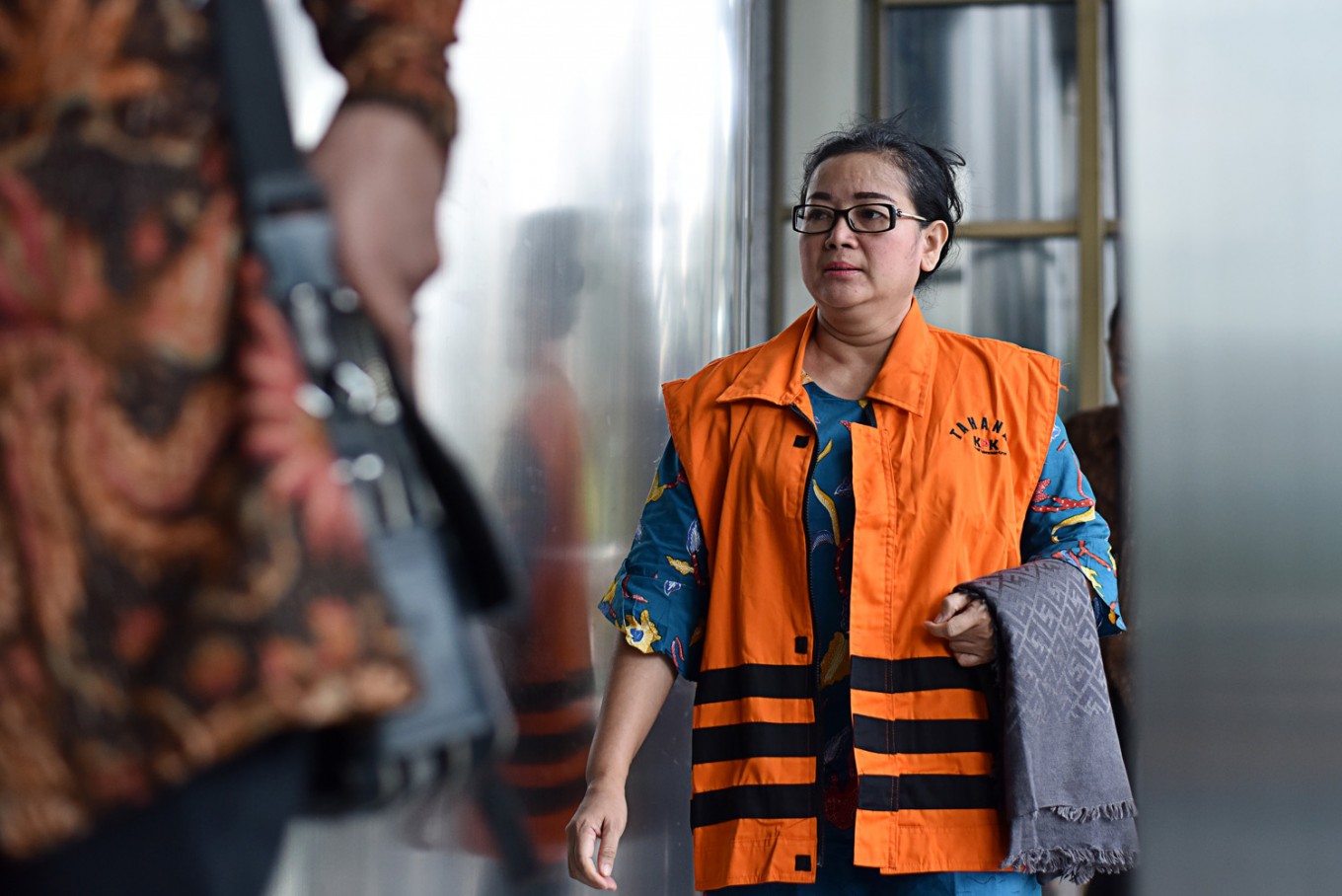Popular Reads
Top Results
Can't find what you're looking for?
View all search resultsPopular Reads
Top Results
Can't find what you're looking for?
View all search resultsEDITORIAL: KPK in DPR's crosshairs
We could be forgiven for thinking the House is trying to protect individuals implicated in the e-ID case.
Change text size
Gift Premium Articles
to Anyone
W
e have seen this move before. The Corruption Eradication Commission’s (KPK) persistence in going after politicians in major corruption cases has many times resulted in a pushback, especially from politicians at the House of Representatives who then made moves to ultimately weaken the anti-graft body. Over the years, politicians at the House have used a plan to amend the 2002 anti-graft law as a specter that they can raise whenever they have the opportunity.
Every year since 2015, House leadership included an anti-graft law amendment to the national priority legislation program (Prolegnas). In its attempt to weaken the KPK in the 2015 amendment proposal, the House wanted to strip the anti-graft body of its authority to conduct wiretappings, which is crucial to the agency’s success in prosecuting graft cases. In 2016, the House looked into setting up an oversight body that would monitor the KPK as well as allow investigators to issue an investigation termination warrant (SP3) to allow graft suspects to escape punishment.
Earlier this year, the House found renewed urgency to amend the KPK law. In February, the House announced it started a campaign to familiarize the public with its draft proposal for the amendment plan. That was before the KPK announced that it had uncovered massive corruption centering on the procurement of an electronic ID (e-ID) system, which implicated a number of House lawmakers, including House Speaker Setya Novanto. The announcement prompted the House to take the “nuclear option.” Sensing that an amendment to the anti-graft law would require a lengthy debate at the House and lacking support from the administration of President Joko “Jokowi” Widodo, lawmakers launched an inquiry into the KPK, a move they claimed only intended to evaluate and improve the work of the anti-graft body.
In launching this inquiry, the House stood on weak legal ground, given that the legislative body only has authority to launch a probe into government institutions. The KPK meanwhile is an independent institution and not part of the government. The fact that one of the individuals implicated the e-ID graft case, Golkar politician Agun Gunanjar Sudarsa, was appointed chairman of the inquiry committee further puts the House on weaker ethical ground. Agun is alleged to have received US$1 million in kickbacks from the e-ID project.
It is not clear what the endgame is of the House’s move with the inquiry plot and we could be forgiven for thinking the House is trying to protect individuals implicated in the e-ID case. If that was what motivated the lawmakers, then it would fit the definition of an abuse of power, in which lawmakers were willing to put the future of the country’s fight against graft at risk for the preservation of their careers. The public should resist any efforts to compromise the work of the KPK and if necessary should relaunch the Cicak lawan Buaya (Gecko versus Crocodile) movement once the anti-graft body is in dire straits.










